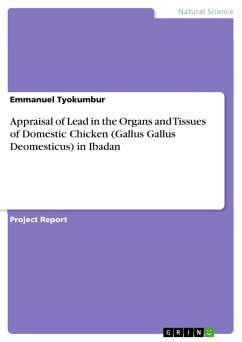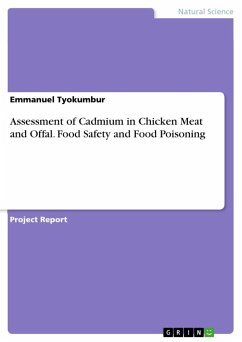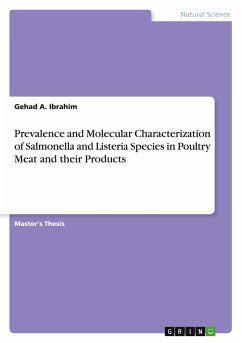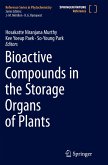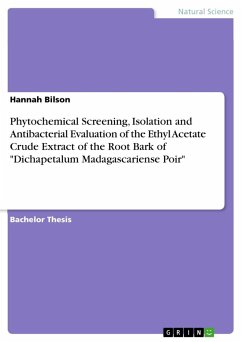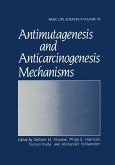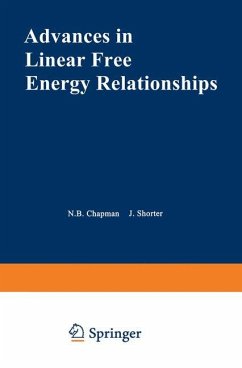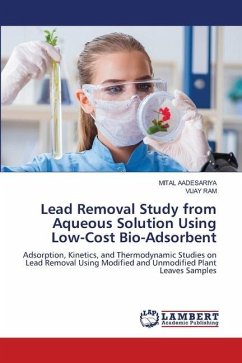Project Report from the year 2015 in the subject Chemistry - Food Chemistry, grade: A, University of Ibadan, course: Zoology, language: English, abstract: A study was carried out on the assessment of lead in the organs and tissues of domestic chicken (Gallus gallus domesticus) in Ibadan from August to September 2015. Ten (10) chickens (layers and broilers) expressed as samples 1-10 were purchased from different retailer markets (Bodija, Ojoo and Sango) within Ibadan City. The chickens were dissected to remove the intestine, liver, kidney, blood, feathers and muscles were oven-dried at 220 degree Celsius. The pulverized organ and tissues samples were acid-digested and analyzed for the heavy metal lead (Pb) using Buck Scientific Atomic Absorption Spectrophotometer (AAS). The results showed that the highest Pb concentrations in parts per million (ppm) were recorded in the liver (2.940+0.040), intestine (3.9800+0.500), kidney(3.6600+0.6000), feather (3.5900+0.06000), and muscle (3.400+0.4000) in sample 10, while the lowest concentration was recorded in the kidney (0.150+0.0300) in sample 1 all at Bodija Market . Analysis of Variance (ANOVA) revealed significance of the Pb metal in the organs and tissues of chickens at P< 0.05. Less than half of the samples had Pb concentration that exceeded the permissible limit of 0.1ppm set by FAO/WHO. The study shows that meat from the chicken organs and tissues in Ibadan are relatively safe for human consumption. There is need for regular biomonitoring of heavy metals in chicken meat and offal globally.
Hinweis: Dieser Artikel kann nur an eine deutsche Lieferadresse ausgeliefert werden.
Hinweis: Dieser Artikel kann nur an eine deutsche Lieferadresse ausgeliefert werden.

